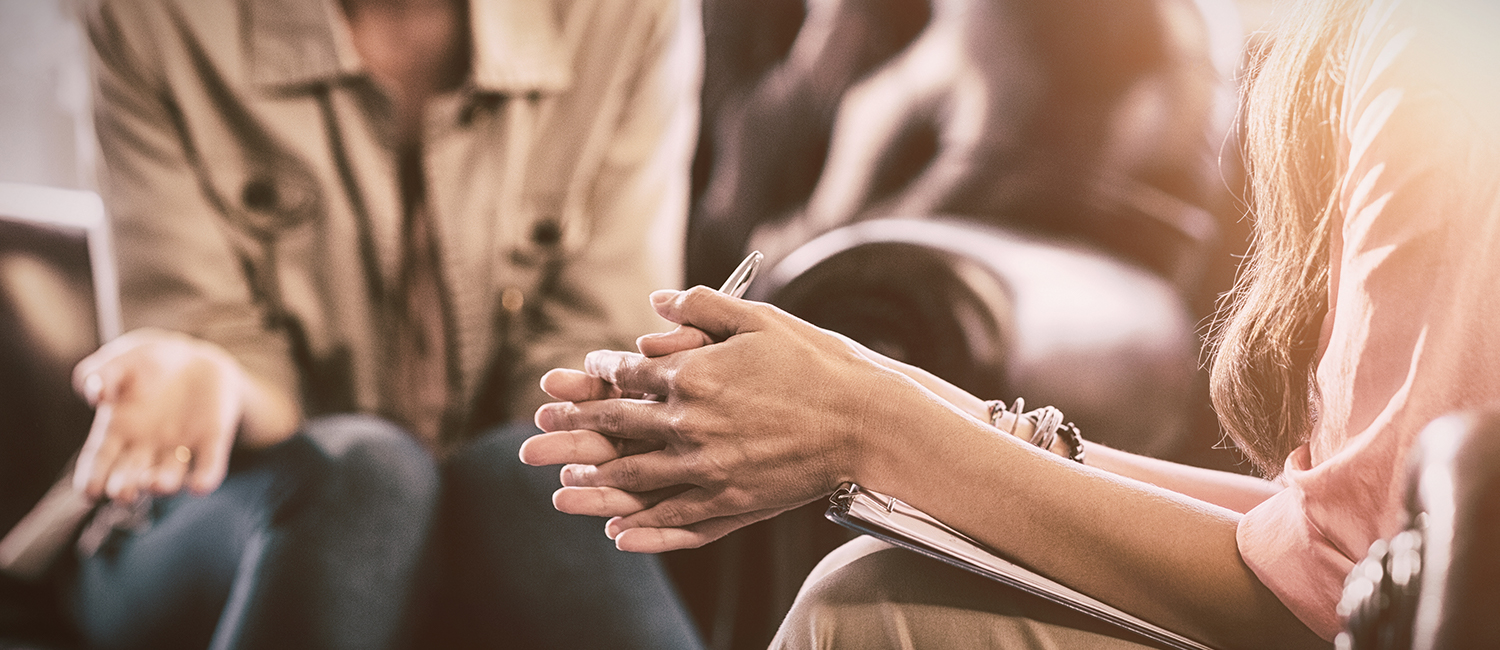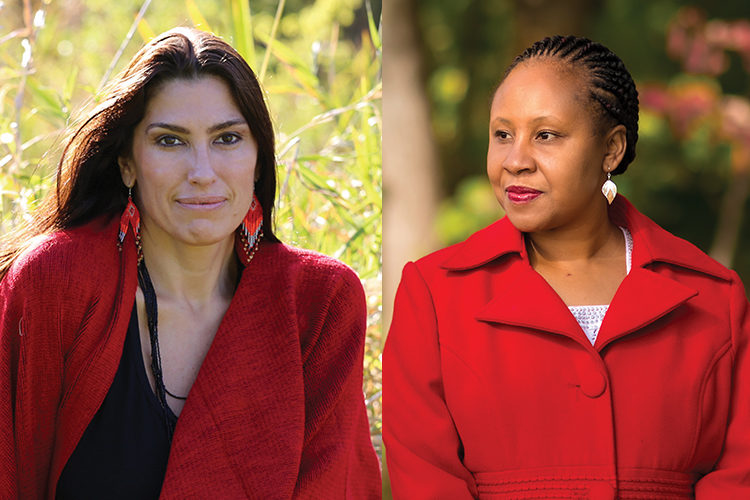
Cultural care
A team is working to provide better help for Native American women after the trauma of sexual violence.
The goal is as important as it is straightforward: Ensure Native Americans who have experienced sexual violence get the help they need. So researchers are focused on training culturally sensitive advocates for Wisconsin’s Indigenous populations and improving access to medical care for survivors.
Native Americans experience sexual violence more than any other ethnic group. The Centers for Disease Control and Prevention reports that 55% have experienced sexual violence. Yet Native American populations are historically less likely to report crimes and receive the forensic medical examinations used to collect evidence against their assailants.
Many victims often live too far from a clinic. But a more ominous reason is fear and distrust of the system.
Lucy Mkandawire-Valhmu, a UWM associate professor of nursing in the College of Nursing, and her team are working closely with Native American tribes to facilitate change. Jeneile Luebke, a survivor of intimate partner violence, is a key part of the team and a member of Wisconsin’s Bad River Band of the Lake Superior Tribe of Chippewa Indians. Researchers are discussing the issues with women and survivors while discerning what approaches might work for different tribes with different needs and concerns.
“The most important thing is, it has to be survivor-led and Indigenous-led,” says Luebke, a postdoctoral fellow at UW-Madison who began work on the project while completing her doctorate at UWM in 2020. The Electa Quinney Institute for American Indian Education has been part of the work to ensure Indigenous women are at the center of the project.

Mkandawire-Valhmu explains that women of color are generally uncomfortable going to a health care facility, and this is particularly true for Indigenous women. Having someone with them, especially someone who identifies as Native American, helps survivors become more comfortable accessing health care. That can affect whether they seek medical help and report a crime.
“They access a mainstream health care establishment that’s predominantly run by white health care providers who have a lot of history of engaging in and participating in the oppression of Native peoples,” Mkandawire-Valhmu says. “It’s not a secret that in health care, it’s been demonstrated, that there is racism. The racism that’s experienced at the community level extends to the health care system.”
In racially segregated Milwaukee County, where the team has already hired an advocate for sexual assault victims, Mkandawire-Valhmu says tribal women also ask about police: “Will they support me as I need it? Or will they look into my history? Or harm the perpetrator?”
The team received a $2 million grant from the U.S. Department of Justice in April 2020. “We started working right away, remotely,” Mkandawire-Valhmu says, “because we heard from our partners that violence against women was increasing during the pandemic.”
The three-year project, titled Tracking Our Truth, partners with several of Wisconsin’s sovereign nations. Plans call for extending it to eventually place advocates across Wisconsin. Their training could include demonstrating knowledge of Native American practices that contribute to healing, recognizing native identity, or simply being a buffer in a moment of anguish.
The work builds on foundational efforts in Native American communities, including those with a focus on cultural connections. Luebke sees an increasing number of younger Native Americans joining older ones in beadwork gatherings, ribbon skirt-making classes and healing circles. Coming together around these centuries-old traditions facilitates supportive environments for frank discussions, including those about sexual violence.
“It’s beautiful. When I grew up, we didn’t talk about that stuff,” says Luebke, whose own research found that nearly 70% of Native American women didn’t seek care after experiencing violence. “Now, everybody is just trying to be open and more supportive, not trying to hide or avoid complicated topics. It’s coming out into the open, and we’re taking about it. People are realizing it’s a way bigger problem than anyone thought it was.”
Mkandawire-Valhmu says she intends to apply for more federal funding. She hopes to broaden her work to advocate for Black women, including refugees.